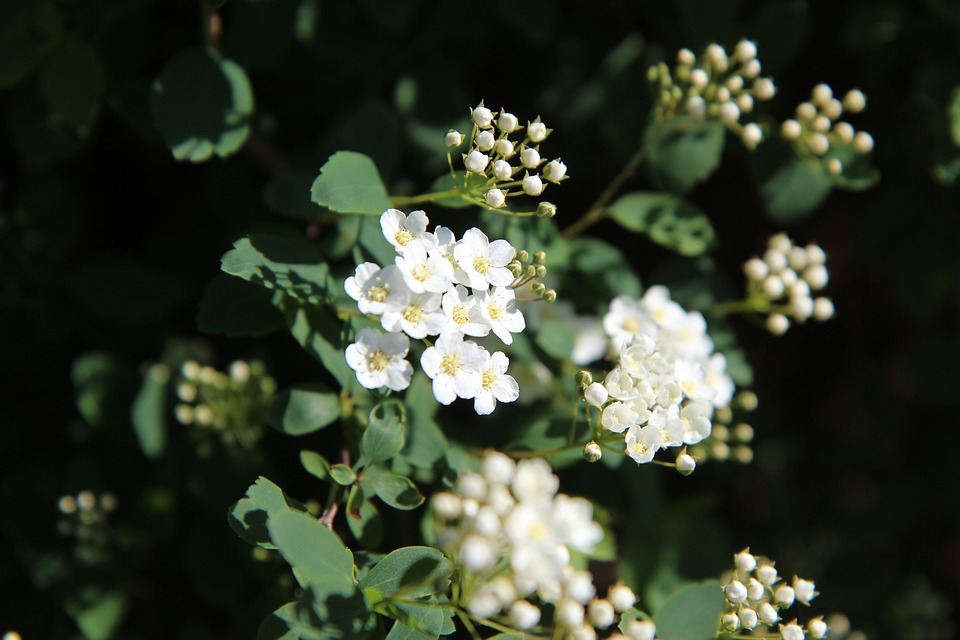The wonders of medicinal plants
Herbalism is the study of botany and use of plants intended for medicinal purposes. Plants have been the basis for medical treatments through much of human history, and such traditional medicine is still widely practiced today.
Many of our gardens grow plants which can be used for medicinal purposes and to aid mental wellbeing. We spoke to Richard, Head Gardener at the National Garden Scheme garden, Madingley Hall in Cambridgeshire, to find out more about the medicinal plants in his garden, their fascinating histories and how to grow them at home.

The medicinal garden at Madingley Hall
Which medicinal plants do you grow at Madingley Hall?
I started working at Madingley Hall in 1988 and I inherited a small, medicinal border. Just over ten years ago, we decided to regenerate the border completely, mixing traditional, herb garden planting within low hedges – introducing a range of plants, from culinary to medicinal, dye and aromatherapy. The plants we grow in this space all have their own unique qualities, but there are a few that particularly stand out. They are:

Lemon verbena
Lemon verbena
Before its medicinal qualities were discovered, lemon verbena was commonly used in perfume. Now it is more often found in your tea; as a matter of fact my neighbours actually go to bed with a cup of it most nights. There are many benefits to this plant – as well as being calming, it can help to aid digestion and reduce cramps. The lemon zest you experience when the leaves are rubbed between your fingers is one of the most rewarding scents in gardening.

Foxglove
Foxglove
Foxglove holds the digoxin that is used in modern medicine for heart regulatory tablets. Discovered by a doctor in the 18th century who was desperate to help his wife with an illness, foxglove has since been used to aid heart weakness, irregular heartbeats and improve the bloodstream to vital organs.

Meadowsweet
Meadow sweet
You can quite commonly find this one at the side of the road. Meadow sweet is a tall plant which grows clusters of white flowers. It has a long history as a medicinal plant and was a favourite among Tudor royalty for its sweet scent. As well as adding some beauty to our border here at Madingley Hall, it is also important to modern medicine, being one of the key ingredients for aspirin tablets!

Americana (Phytolacca americana)
What is your favourite medicinal plant?
It’s difficult to choose just one, but I think it would have to be Americana (Phytolacca americana), also known as ‘Virginian pokeweed’.
This is a strong growing plant with pink stems and hints of pink in the foliage as the season progresses produces maroon coloured berries.
Most commonly used as a dye plant, in the past people also chewed on the berries that Americana produce, in the belief that they would ease arthritic pain, and the symptoms of glandular fever.
The berries on this plant are highly toxic, so this is definitely a practice that’s best left to the experts!
Which plants are associated with mental wellbeing?
The two that stand out to me are rosemary and chamomile.
Rosemary has been used for its medicinal qualities for centuries, and traditionally is believed to aid memory and promote calmness.
Chamomile is much the same and is often found in herbal teas in the supermarket. This plant helps to aid sleep, relieve stress and help you relax, so similar to lemon verbena, this is a great tea to try before bed.

What advice would you share for people thinking about growing their own medicinal plant patch?
Growing your own patch of these plants can be really easy and quite simple.
I would recommend planting a small tub of mixed herbs and placing it outside your backdoor. Each evening, as part of your routine, maybe after doing the washing-up for example, step outside and run your hands through their leaves to enjoy the scents and essences they provide.
To start, try planting a selection of pineapple sage, lemon verbena, some lavender, rosemary and a few English Marigolds to add a pop of colour to your tub. For some additional scents, why not pop a curry plant in or add some mint leaves too.
Visit Mandingley Hall
National Garden Scheme are delighted to announce that Madingley Hall in Cambridge are holding pop up openings from Monday 20th – Friday 24th August from 8am to 7pm, for Gardens and Health Week. This will include the chance to view their famous medicinal garden.

















